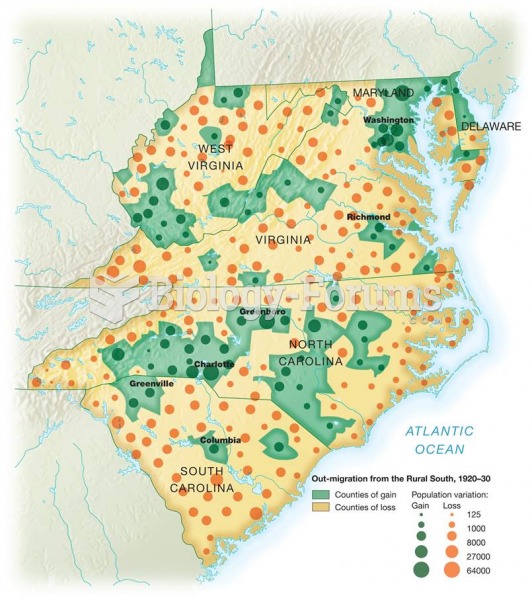|
|
|
The first successful kidney transplant was performed in 1954 and occurred in Boston. A kidney from an identical twin was transplanted into his dying brother's body and was not rejected because it did not appear foreign to his body.
Disorders that may affect pharmacodynamics include genetic mutations, malnutrition, thyrotoxicosis, myasthenia gravis, Parkinson's disease, and certain forms of insulin-resistant diabetes mellitus.
According to research, pregnant women tend to eat more if carrying a baby boy. Male fetuses may secrete a chemical that stimulates their mothers to step up her energy intake.
Human kidneys will clean about 1 million gallons of blood in an average lifetime.
Inotropic therapy does not have a role in the treatment of most heart failure patients. These drugs can make patients feel and function better but usually do not lengthen the predicted length of their lives.
 Tropical rain forest in Borneo. Within the three-dimensional framework of tropical rain forests live
Tropical rain forest in Borneo. Within the three-dimensional framework of tropical rain forests live
 Shortly after his death, George Washington had already become myth—part Moses, part angel—in this wo
Shortly after his death, George Washington had already become myth—part Moses, part angel—in this wo





